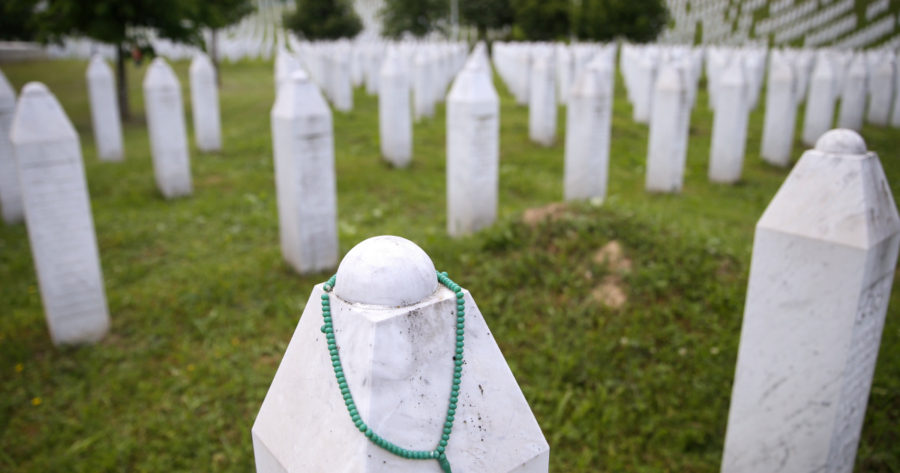
Montenegro passes resolution condemning Srebrenica genocide
Parliament resolution, which also bans denying the genocide, comes as the justice minister is sacked for doing so.
Montenegro’s parliament has adopted a resolution condemning the Srebrenica genocide and dismissed a pro-Serb minister who recently denied the massacre, exposing a rift within the ruling coalition.
Legislators on Friday voted by 43 to 27 to replace Justice Minister Vladimir Leposavic for disputing that the 1995 killing of some 8,000 Bosniak Muslims in Srebrenica by Bosnian Serb forces late in the Bosnian War amounted to genocide.
Leposavic had said in March that he would acknowledge the killings as a genocide only when it had been “unequivocally determined”.
Despite causing huge controversy with the comments, Leposavic refused to quit and received support from a bloc of pro-Serbian legislators that are part of Montenegro’s governing alliance.
But Prime Minister Zdravko Krivokapic demanded Leposavic’s removal, with the incident drawing international criticism of Montenegro, the Balkan nation that is a NATO member and seeking European Union entry.
“By proposing the dismissal of the minister, I took the risk of being marked once again as an enemy and a traitor only for the sake of justice and truth,” Krivokapic told parliament.
He said Leposavic’s dismissal was necessary for a civil society pushing for European integration.
Separately, legislators also approved the resolution condemning the Srebrenica massacre, which remains the only episode of genocide on European soil after World War II, with 55 votes in favour and 19 against in the 81-member assembly.
The resolution strongly condemned the genocide, banned its denial and introduced a commemoration day for the incident.
In Bosnia, where rival ethnic groups could not agree to pass a similar resolution on Srebrenica, Sefik Dzaferovic, a Muslim Bosniak member of the country’s tripartite presidency, hailed Montenegro’s move as an “enormous contribution to strengthening peace and trust”.
It passed in parliament, thanks to support from opposition legislators from President Milo Djukanovic’s Democratic Party of Socialists (DPS).
However, the pro-Serb Democratic Front (DF) voted against the resolution.
It was not immediately clear if Thursday’s developments could trigger the breakup of the ruling coalition, which won a slight majority at the election last August, removing from power Djukanovic’s DPS party after 30 years.
http://https://www.youtube.com/watch?v=t_Q3Xl8KoVo
Djukanovic, who remains the country’s president, led Montenegro to independence from much-larger Serbia in 2006 and defied Russia to steer the country into NATO in 2017, but has faced accusations of links to crime and corruption.
The new government has pledged to pursue Montenegro’s bid to join the EU but cracks have since emerged with the ruling coalition’s pro-Serb parties – which have close ties with Russia.
Montenegro was part of the same country as Serbia throughout the Bosnia war, partially breaking in 1996 to form a federation and eventually gaining full independence in 2006.
Roughly 29 percent of Montenegro citizens identify as Serb, and 12 percent as Muslim or Bosnian Muslim.
Source: https://www.aljazeera.com/news/2021/6/18/montenegro-minister-sacked-over-srebrenica-genocide-denial

